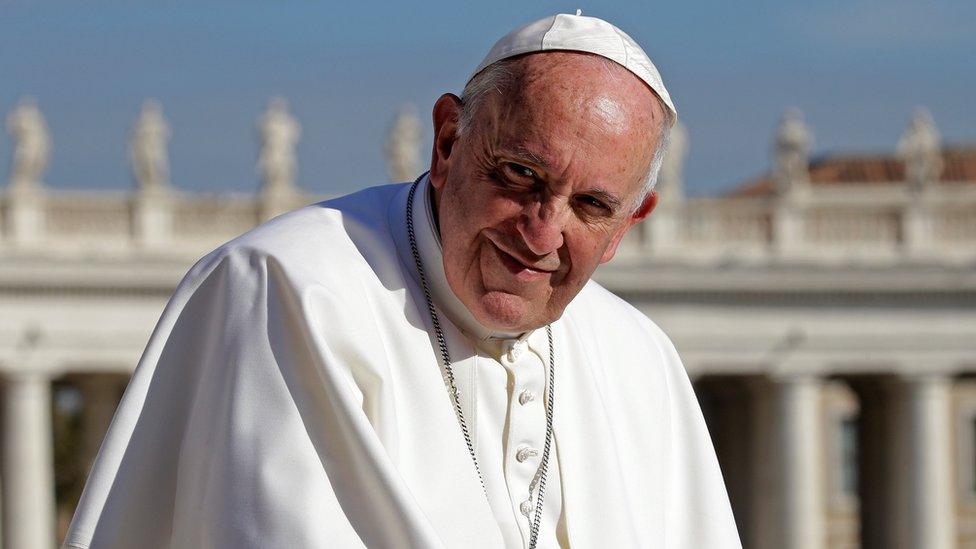Challenge to Pope as 'gay lobby' talk fills Vatican
- Published
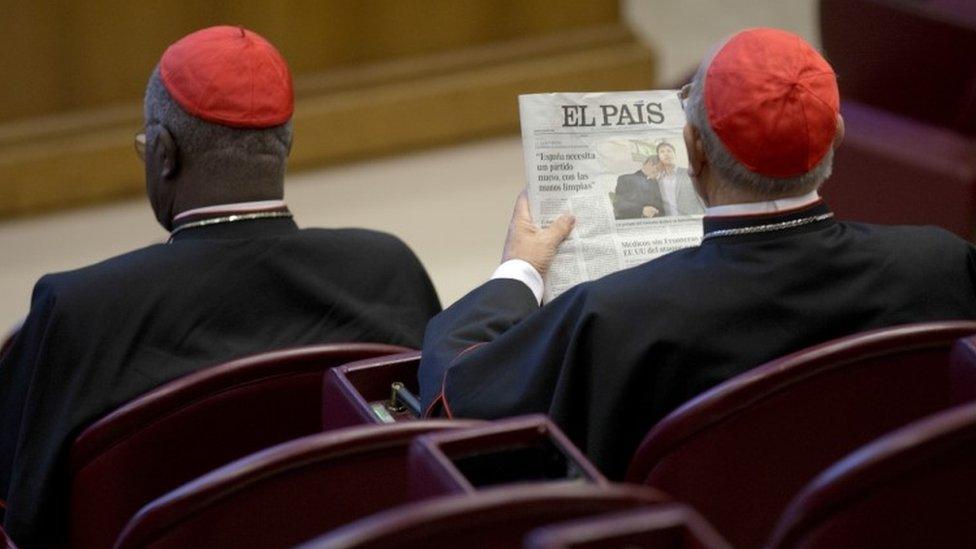
The controversy surrounding Krzysztof Charamsa's decision to out himself as a homosexual has overshadowed the synod
At the midway point of one of the most significant Vatican meetings since the Second Vatican Council half a century ago uncertainty reigns among the nearly 300 participants - most of them celibate male clerics - about what it will or can accomplish.
Pope Francis is being challenged by some powerful cardinals holding key posts inside the Vatican who fear for their careers, as a smaller group of clerics who support his reforms are pushing for change.
The Pope has been warning darkly against unspecified "conspiracies" and "scandals" by lobbies who are playing a new role in Church politics. The existence of a so called "gay lobby" inside the Vatican has been confirmed by the outing of a gay priest who decided to go public on the eve of the opening of the Synod, causing shock and embarrassment to the organisers.
Pope Francis is the first Pope ever to utter the word "gay" in public.

Conservatives and reformers
Cardinal George Pell - Former Archbishop of Sydney now in charge of Vatican financial reform - widely seen as a conservative
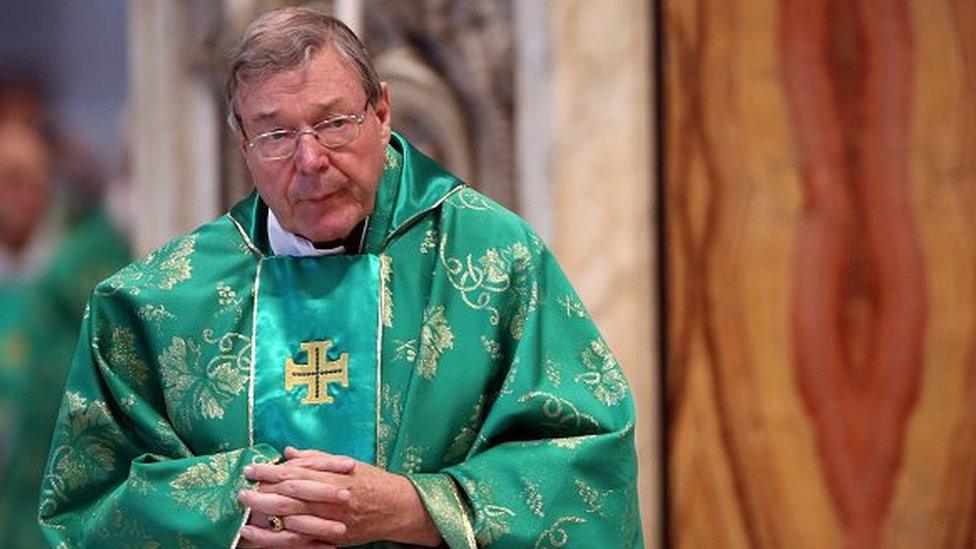
Cardinal Pell has a reputation as a strict adherent of Roman Catholic orthodoxy
Raymond Burke - From the US, former top Vatican official demoted by Paul Francis, now patron of the Knights of Malta but still a leading member of the conservative lobby
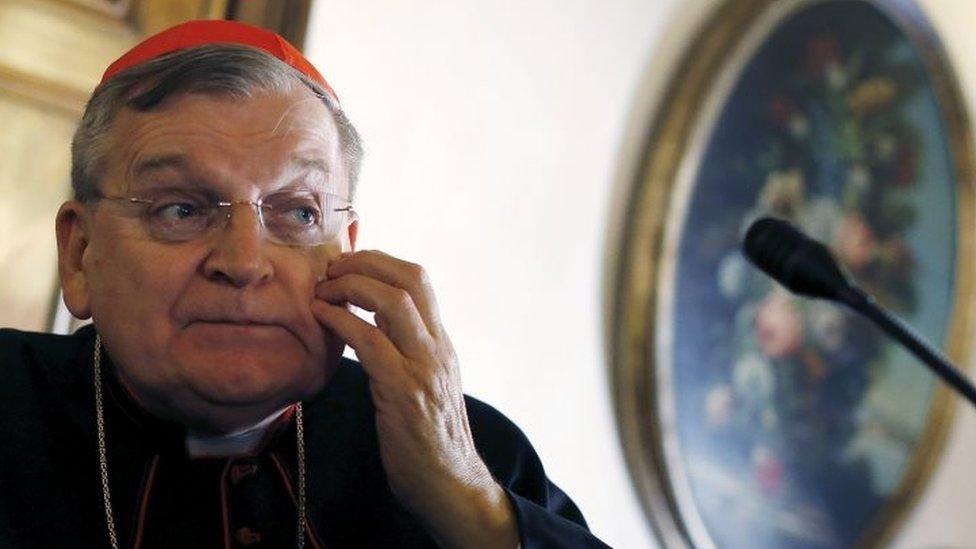
Cardinal Burke is a leading supporter of the conservative Voice of the Family group
Krzysztof Charamsa - Polish Monsignor and senior Vatican official who came out just before Synod and will shortly be defrocked - he has called for a more open attitude to gays
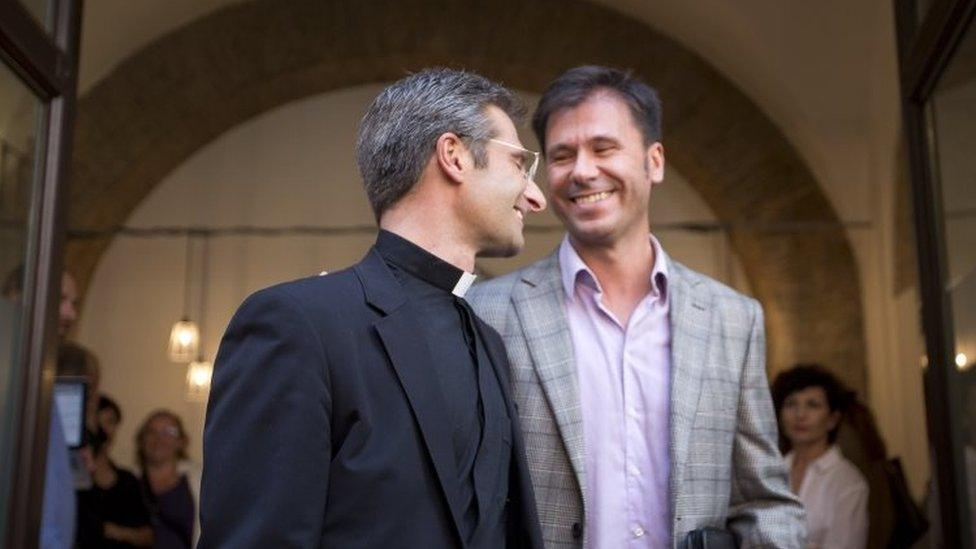
Krzysztof Charamsa (left) - seen here with his partner Eduard - caused a stir when he revealed he was gay shortly before the meeting started
Cardinal Walter Kasper - German, praised by Pope Francis for his book on mercy - one of the Church's leading reformist theologians whose views are shared by Pope Francis
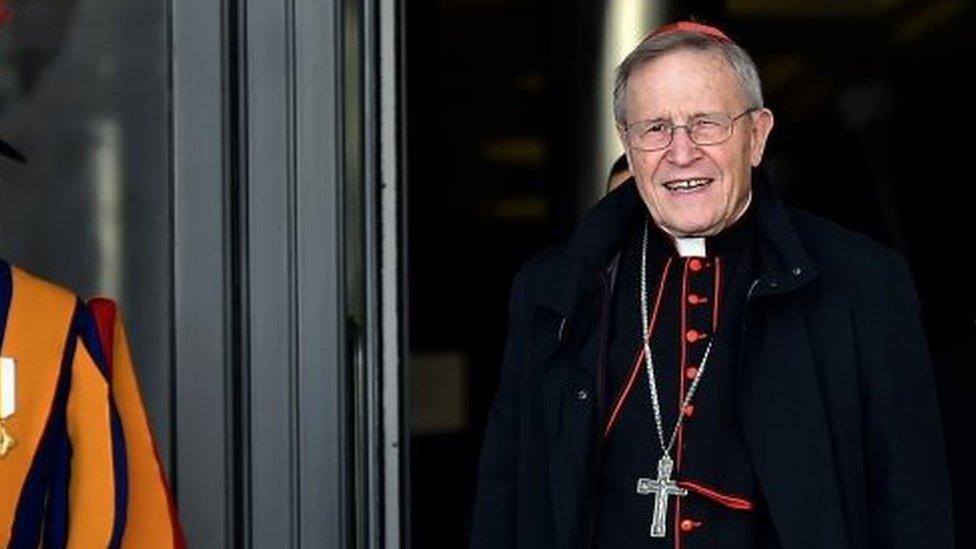
Cardinal Walter Kasper is retired but well regarded by the Pope

Hitherto, a deep taboo has prevailed on the subject of homosexuality and homophobia. Pope Francis is recommending a more merciful and less judgmental attitude towards gays who want to remain inside the church.
One synod participant, the Archbishop of Brisbane in Australia, Mark Coleridge, has been blogging throughout the conference giving a refreshingly candid view of the discussions.
He has complained, however, about "lack of focus" and a tendency towards "Church-speak", which he admits "may seem wondrous to us, but communicates little or nothing to most people".
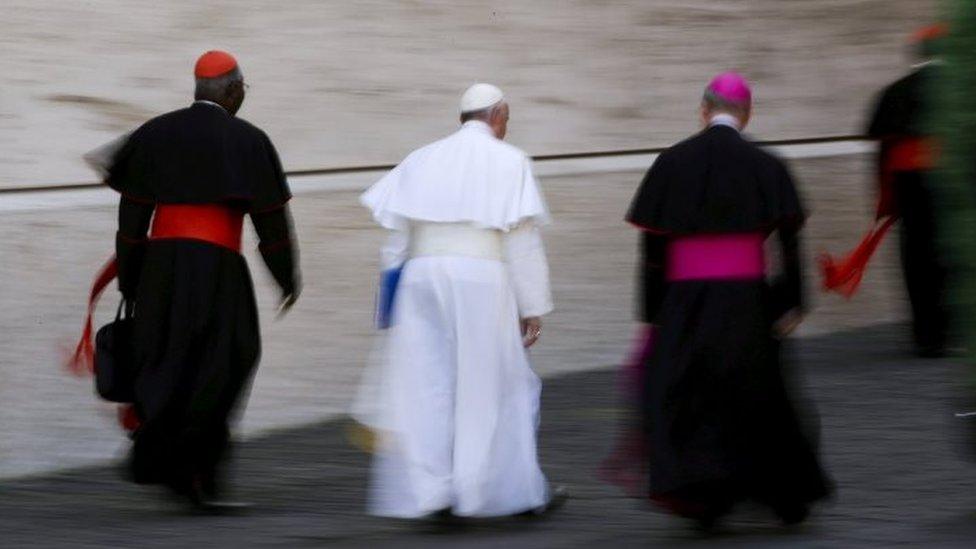
Pope Francis is being challenged by some powerful cardinals holding key posts inside the Vatican
Members of the Synod on the Family, as the three week conference is called, are divided between cardinals and bishops who want to emphasise the unchanging nature of Church teaching on such controversial matters as same-sex unions, contraception, the admission of divorced and remarried Catholics to communion - and those who feel that the language of the Church is too fusty and has become largely meaningless - particularly to young couples of today, whether married in church, in a civil ceremony or merely cohabiting.
Secret decisions
Pope Francis, who is closely following the proceedings of what has become an exceedingly long, drawn-out consultation of Church leaders from around the world (the first session was held a year ago), has told participants not to be afraid of putting their views forward at the closed-door conference.
Bishops are gathering alternately in plenary session and in small language groups. They plan to produce a final report which will serve as a guide to Pope Francis in drawing up his final words on the subject.
The synod is not a parliament of the Church, Pope Francis stresses, but it has been hailed as marking a step forward in modern Church governance by involving senior Church figures from around the world in the secret decision-making process that has gone on for centuries inside the Vatican.
David Willey is the author of The Promise of Francis: The Man, the Pope and the Challenge of Change
- Published14 October 2015
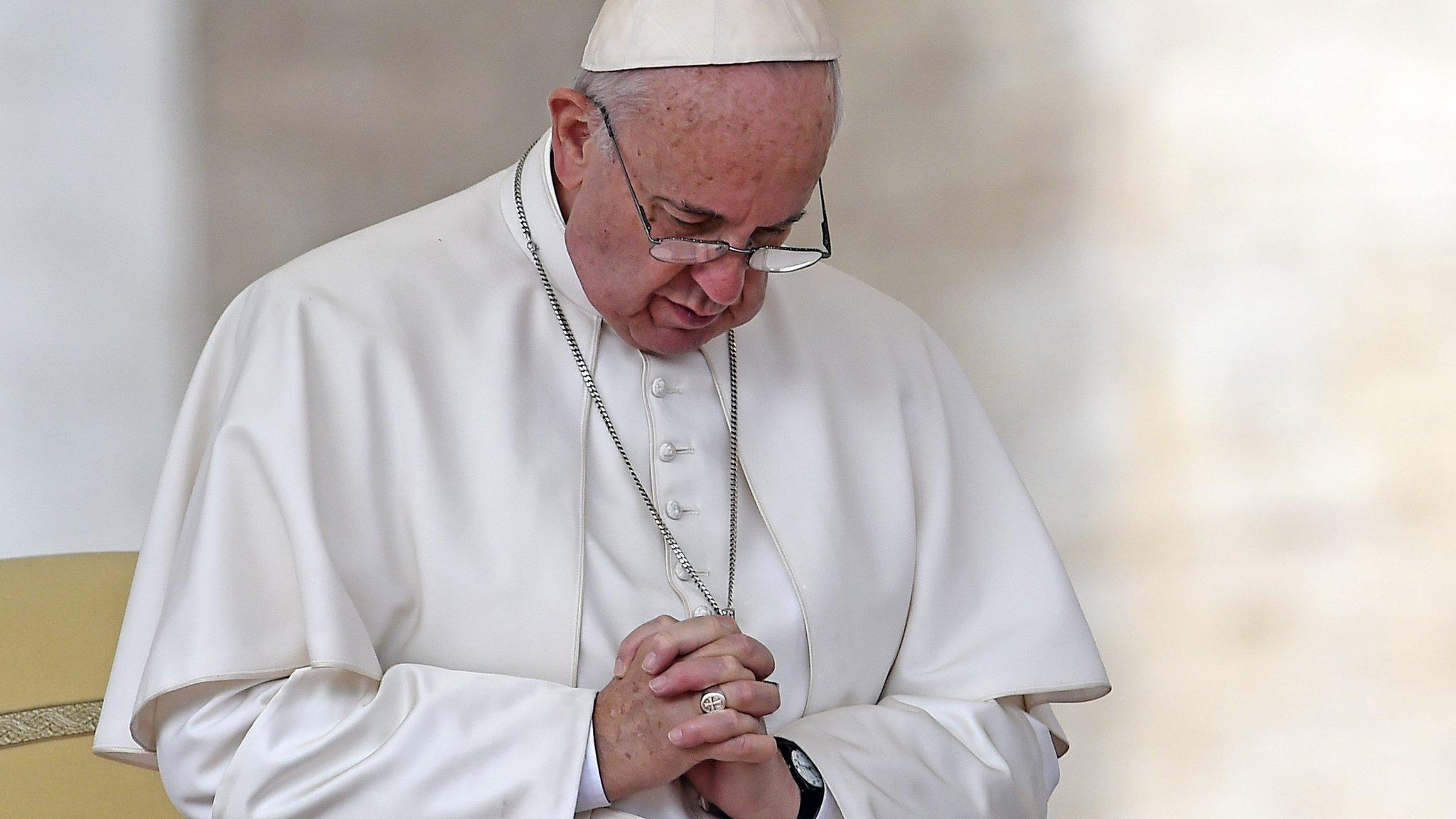
- Published4 October 2015
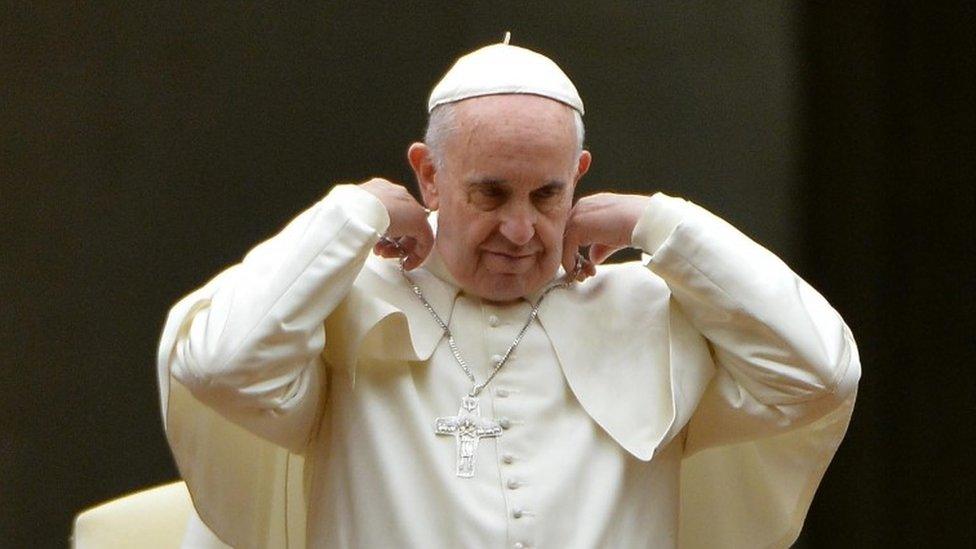
- Published3 October 2015
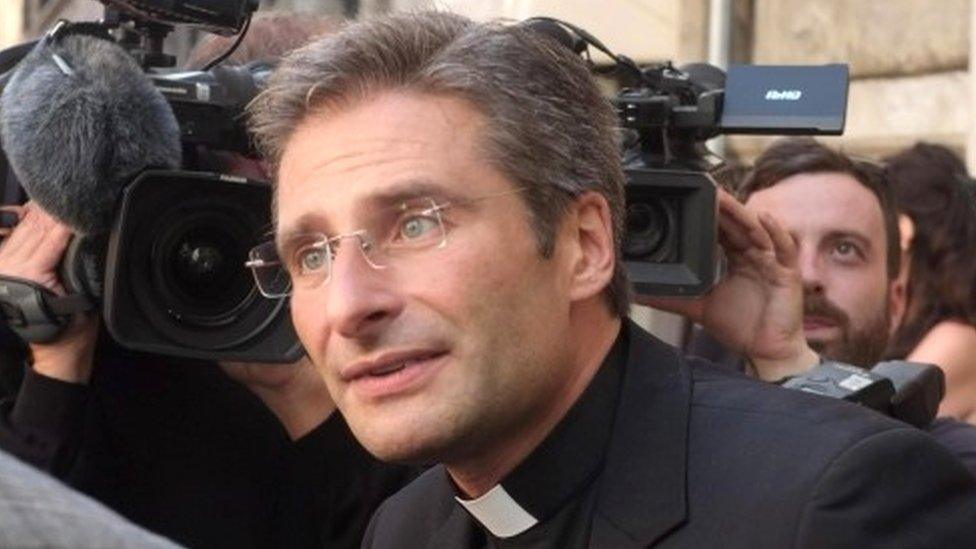
- Published3 October 2015
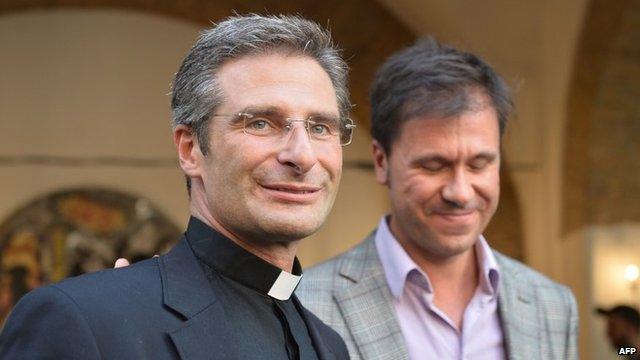
- Published22 September 2015
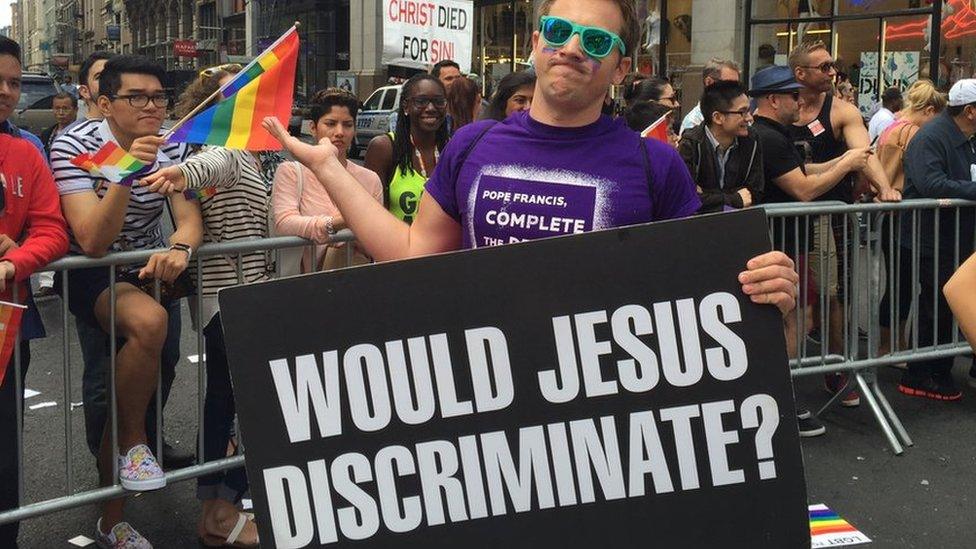
- Published2 October 2015
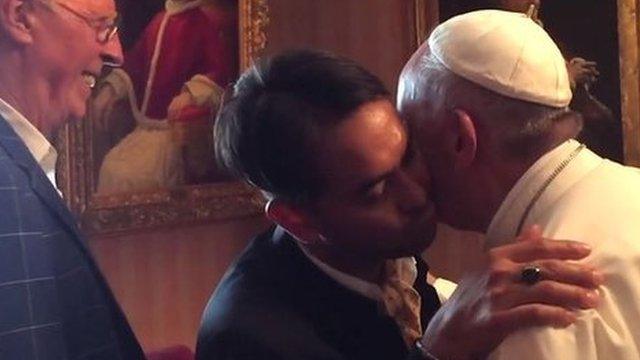
- Published28 October 2022
